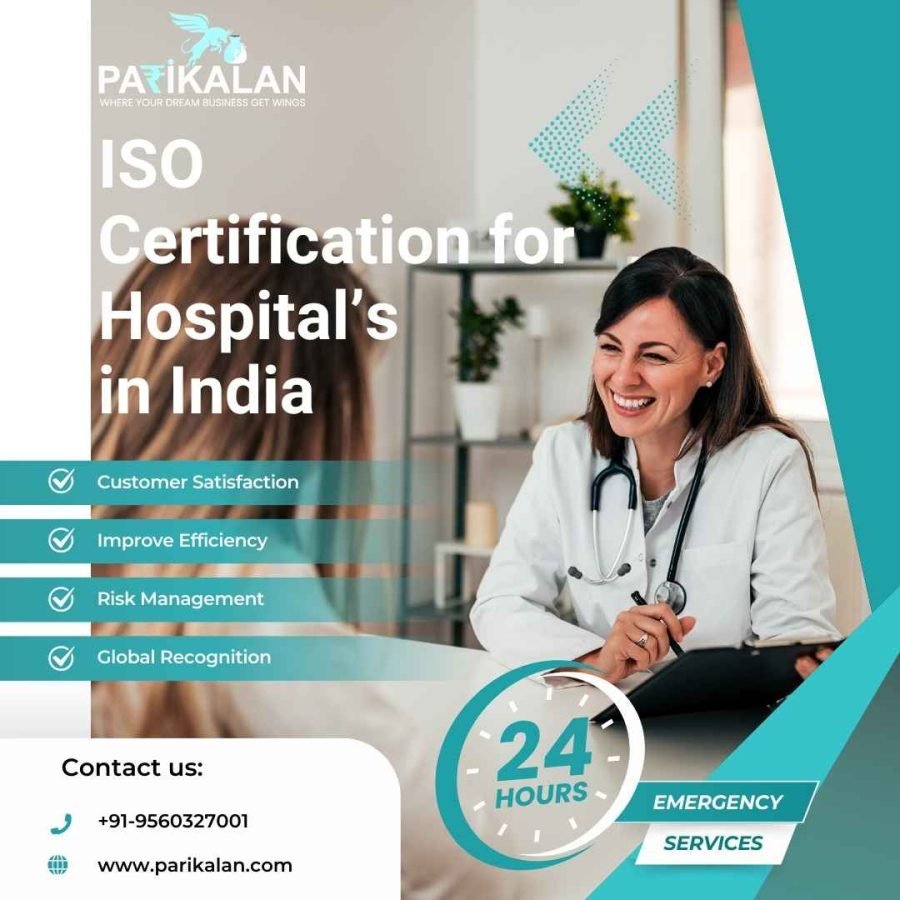ISO Certification for Hospitals in India: Raising Healthcare Standards
India’s healthcare sector is evolving rapidly, driven by the increasing demand for high-quality medical services and improved patient safety. One of the best ways for hospitals to meet these expectations is by obtaining ISO certification—a globally recognized framework that helps ensure top-tier healthcare standards. ISO certification provides hospitals with a structured approach to enhancing efficiency, improving patient care, and building trust among patients and stakeholders.
Get Business Development Kit
Which ISO Certification is useful for Hospitals ?
ISO certification for hospitals in India, serves as a quality benchmark, assuring patients and regulatory bodies that healthcare services meet global standards.
Some key ISO standards applicable to hospitals include:
- ISO 9001:2015 – Quality Management System (QMS)
- ISO 14001:2015 – Environmental Management System
- ISO 45001:2018 – Occupational Health and Safety
- ISO 27001:2022 – Information Security Management
- ISO 15189:2022 – Quality and Competence in Medical Laboratories
Why ISO Certification is Essential for Hospitals in India
ISO certification for hospitals is crucial aiming to provide high-quality healthcare services. It helps create a structured approach to improving patient outcomes and hospital operations. The key benefits include:
- Standardized Processes – Ensures uniformity in healthcare delivery by implementing consistent protocols.
- Patient Safety Assurance – Reduces risks and increases patient confidence by minimizing medical errors.
- Regulatory Compliance – Helps hospitals adhere to national and international healthcare regulations.
- Operational Excellence – Promotes resource efficiency and reduces unnecessary costs.
- Competitive Advantage – Enhances hospital credibility and helps stand out in the healthcare market.
Are You Looking To Enhance Your Business Credibility And Quality Standards ?
How ISO Certification Benefits Hospitals in India
ISO 9001:2015 – Quality Management System (QMS)
- Establishes a systematic approach to hospital management, leading to better patient care.
- Focuses on continuous improvement and customer satisfaction.
ISO 14001:2015 – Environmental Management System
- Encourages hospitals to adopt sustainable practices and reduce environmental impact.
- Promotes efficient waste management and energy conservation.
ISO 45001:2018 – Occupational Health and Safety
- Ensures a safe and healthy environment for both healthcare staff and patients.
- Helps minimize workplace risks and prevent accidents.
ISO 27001:2022 – Information Security Management
- Protects sensitive patient information from cyber threats and unauthorized access.
- Ensures compliance with data privacy regulations.
ISO 15189:2022 – Quality and Competence in Medical Laboratories
- Guarantees accurate and reliable diagnostic results by standardizing lab procedures.
- Enhances trust in medical testing and diagnostics.
Steps to Achieve ISO Certification for Hospitals in India
Key Steps in the Certification Process:
- Gap Analysis: Identify operational gaps and areas that need alignment with ISO standards.
- Documentation Preparation: Develop policies, procedures, and manuals to comply with ISO guidelines.
- Implementation: Train staff and integrate ISO processes into daily hospital operations.
- Internal Audit: Evaluate compliance, identify gaps, and take corrective actions.
- Certification Audit: An external assessment by an accredited body to verify compliance.
- Certification Achievement: Once compliance is confirmed, hospitals receive the official ISO certification.
Documents Required for Applying ISO 9001 Certification

Company / Service Govt. Registration Proof

Valid Letter Head including Address

Quality Manual

Internal Audit/MRM
What is next now ?
ISO certification is a vital step for hospitals in India striving to deliver world-class healthcare. By adopting globally recognized standards, hospitals can enhance patient safety, operational efficiency, and overall service quality. While the certification process requires effort and commitment, the long-term benefits—such as improved patient trust and regulatory compliance—make it a worthwhile investment.
Ultimately, pursuing ISO certification for hospitals is not just about meeting standards; it’s about ensuring a commitment to excellence in healthcare for a better, healthier India.



